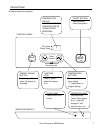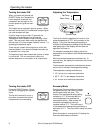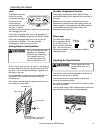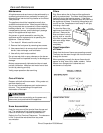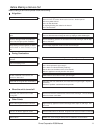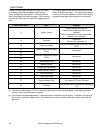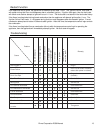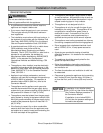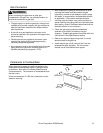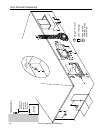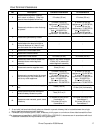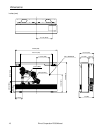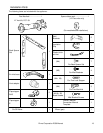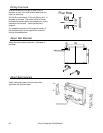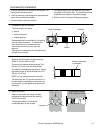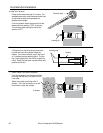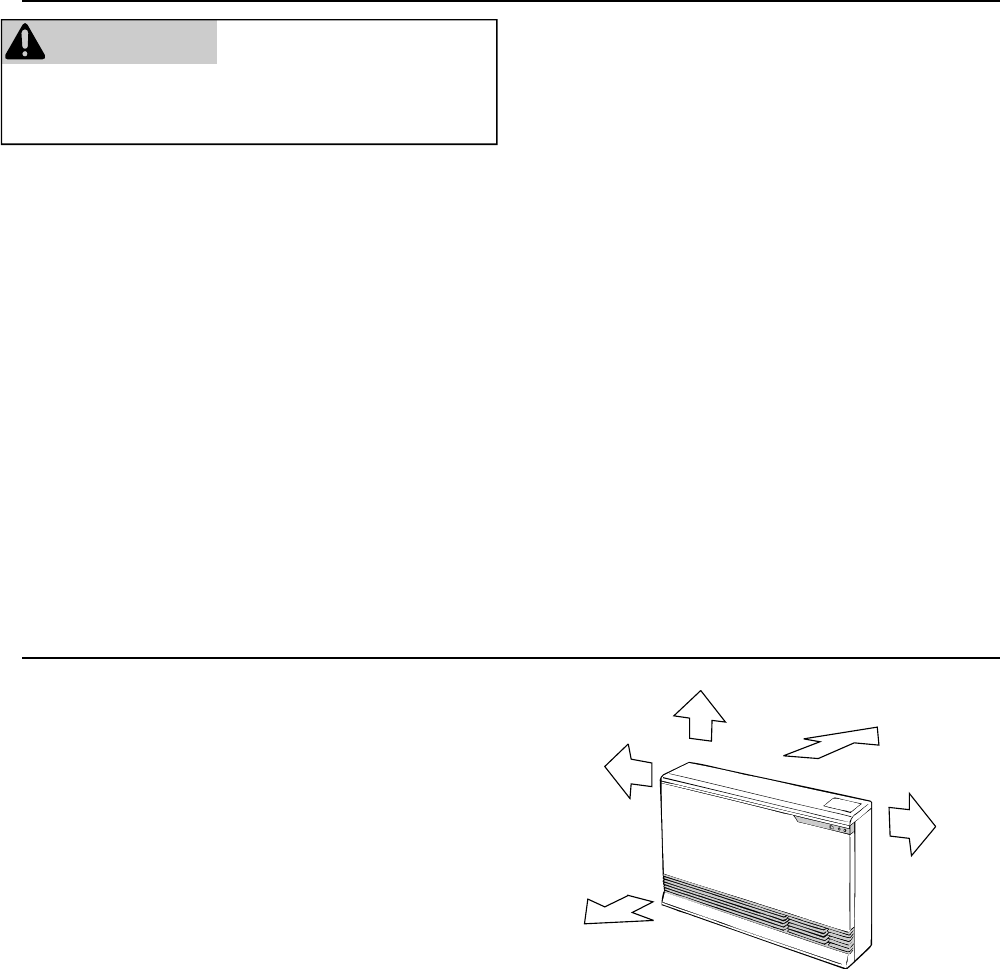
Rinnai Corporation ES38 Manual 15
Gas Connection
• The gas supply line shall be gas tight, sized and so
installed as to provide a supply of a gas sufficient to
meet the maximum demand of the heater without
loss of pressure.
• A shut off valve and appliance connector valve
should be installed in the upstream of the gas line to
permit servicing.
• Flexible pipe and any appliance connector valve
used for gas piping shall be types approved by
nationally recognized agencies.
• Any compound used on the threaded joint of the gas
piping shall be a type which resists the action of
liquefied petroleum gas (propane / LPG).
• After completion of gas pipe connections all joints
including the heater must be checked for gas
tightness by means of leak detector solution, soap
and water, or an equivalent nonflammable solution,
as applicable. (Since some leak test solutions,
including soap and water, may cause corrosion or
stress cracking, the piping shall be rinsed with water
after testing, unless it has been determined that the
leak test solution is non-corrosive.)
• Check the gas supply pressure immediately
upstream at a location provided by the gas
company. Supplied gas pressure must be within the
limits shown in the Specifications section.
• Refer to an approved pipe sizing chart if in doubt
about the size of the gas line.
• Install manual gas cut-off valve so that it can be
accessed for easy operation. Do not conceal
manual cut-off valve behind back spacer.
Clearances to Combustibles
When determining where to install the appliance the
clearances to combustibles shown in the figure must
be followed. Also refer to the Safety Behaviors and
Practices section. The clearance to combustibles from
the top is zero.
Rinnai recommends 10” (250 mm) clearance on both
sides for servicing.
10"(250mm)
0"
2"
(50mm)
2"
(50mm)
40" (1m)
When connecting the gas valve or other gas
components in the gas line, use a backup wrench to
ensure the connection is gas tight.
WARNING



